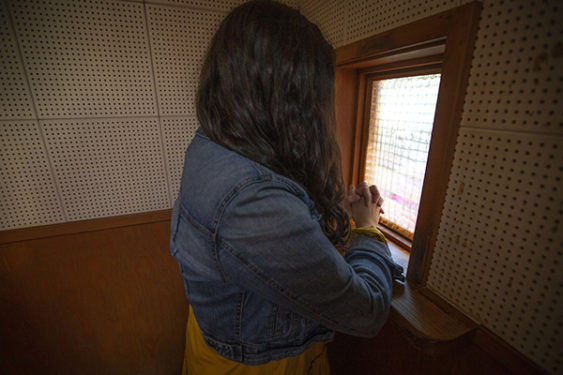
The Tablet Staff
The lobbying group that represents the Catholic Church in Wisconsin is speaking out against two bills in the state, including one that would force clergy members to violate the seal of confession and one that would lift the statute of limitations on reporting alleged abuse by clergy.
The Clergy Mandatory Reporter Act is one of two bills announced via email on Aug. 7. It would replace a 2004 bill of the same name and require priests alerted of child abuse during the sacrament of confession to report that information to authorities.
According to the Catholic Herald, the newspaper of the Diocese of Madison, under Wisconsin state law, clergy members must report abuse, but are exempt from reporting information learned during sacramental confession.
Priests who violate the seal of confession run the risk of automatic excommunication from the church.
“If you look at our teaching, [confession] is ultimately between the person and God, and the priest acts as an intermediary in that relationship,” Kim Vercauteren, executive director of the Wisconsin Catholic Conference, the public-policy arm of the church in the state, told Catholic News Agency.
“The need for secrecy and to be able to be candid in that circumstance is kind of the whole premise behind confession that this is the opportunity to completely unburden your soul,” she said.
The second bill, the Child Victims Act, would temporarily remove the statute of limitations for victims of abuse. According to CNA, victims of child sex abuse in Wisconsin cannot take legal action after age 35.
Under the new bill, adults who previously couldn’t file a civil suit because of the statute of limitations would receive a three-year window in which to sue. The bill would also eliminate the age limit.
Both bills were sponsored by Democratic Wisconsin state Senator Lena Taylor, and Democratic state Reps. Chris Taylor and Melissa Sargent. State legislators have until Aug. 21 to co-sponsor the bills.
“There are ways in which we can provide greater reporting of child abuse in Wisconsin and elsewhere, expanding that to other forms of abuse or setting up a third-party reporting mechanism,” Vercauteren said.
“I think more needs to be done to highlight what can be done for victim-survivors and what are some of the other resources out there,” she said, stressing that parishioners should treat victims compassionately while learning about existing ways to report alleged abuse.
“Catholics should always respond with care and consideration for the victims. I can’t stress that enough, because these individuals have suffered irreparable damage in their lives, and we have to meet them where they are at in this process,” she added.
